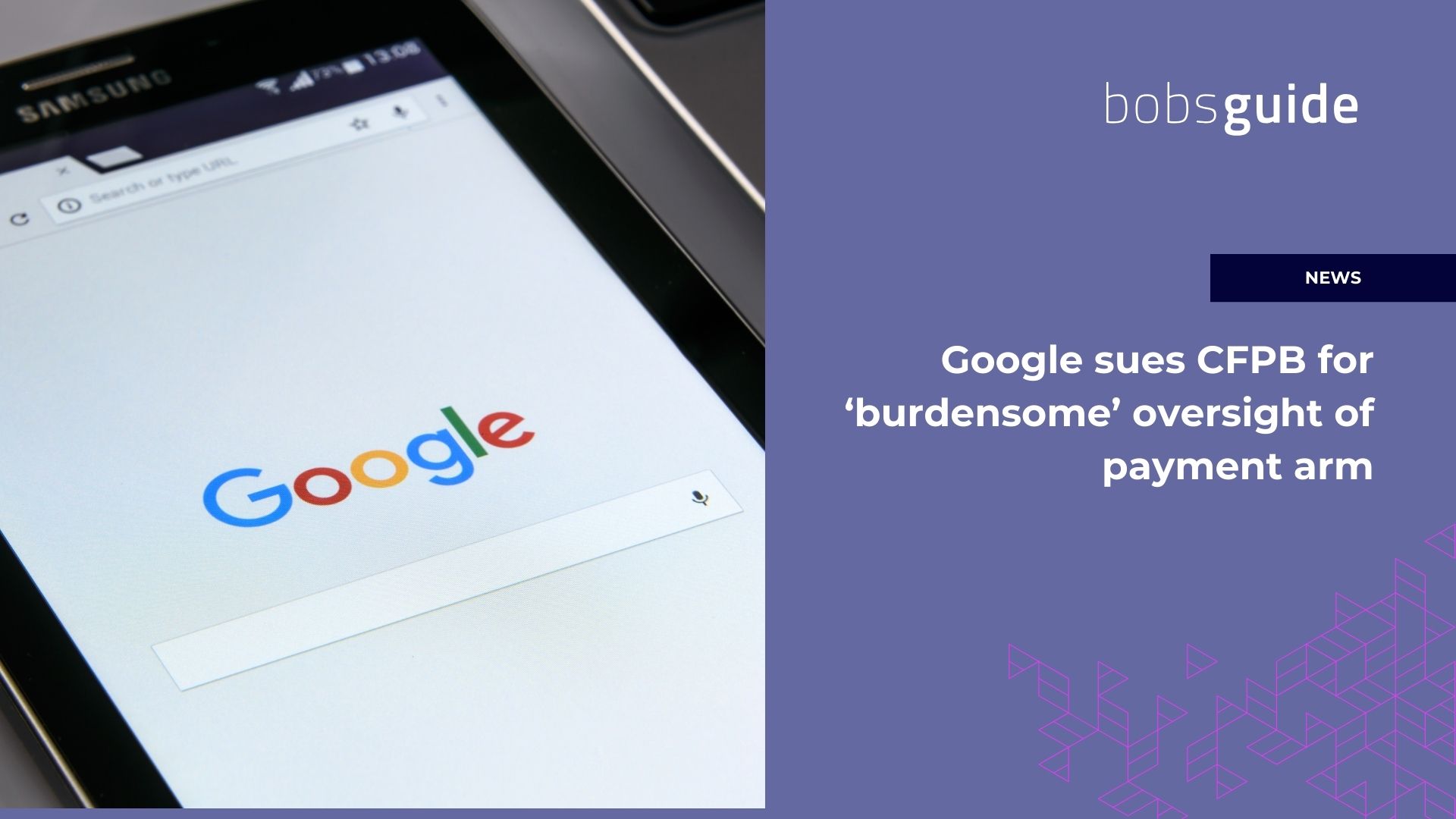Google sues CFPB for ‘burdensome’ oversight of payment arm
Google has launched a legal battle against the Consumer Financial Protection Bureau (CFPB), challenging the agency’s decision to subject its payment division to federal oversight in what it calls an overreach of regulatory authority.
-
Editorial Team
- December 9, 2024
- 2 minutes

Google has filed a lawsuit against the Consumer Financial Protection Bureau (CFPB), contesting the agency’s decision to place its payment division, Google Payment Corp., under federal supervision. The legal action, filed in the U.S. District Court in Washington, DC, highlights growing tensions between technology companies and regulators as the lines between technology and financial services continue to blur.
The CFPB’s decision is based on consumer complaints related to a discontinued peer-to-peer payment product formerly offered by Google Pay.
According to Google, the product, which ceased operations in the U.S. in mid-2024, cannot logically pose ongoing risks to consumers. In its lawsuit, Google described the CFPB’s actions as a “burdensome form of regulation” founded on “a small number of unsubstantiated user complaints.”
José Castañeda, a Google spokesperson, characterised the CFPB’s decision as government overreach. He stated, “This is a clear case of government overreach involving Google Pay peer-to-peer payments, which never raised risks and is no longer provided in the U.S., and we are challenging it in court.”
The lawsuit further alleges that the CFPB has set an “exceedingly low bar” for justifying supervision, arguing that regulatory scrutiny based on defunct services is both unnecessary and unwarranted.
CFPB’s justification
The CFPB, however, maintains that Google Payment Corp. meets the legal criteria for supervision. It cited consumer complaints, including claims of poor handling of erroneous transactions, as evidence of potential risks. The agency emphasised that its order does not constitute findings of wrongdoing but aims to ensure compliance with consumer protection laws.
“This authority gives us critical agility to move as quickly as the market, allowing us to conduct examinations of financial companies posing risks to consumers and stop harm before it spreads,” explained CFPB Director Rohit Chopra.
Implications for the tech and financial sectors
This case highlights broader regulatory efforts to scrutinise technology firms offering financial products. With companies such as Google, Apple, and Samsung expanding into financial services, the CFPB has sought to extend its oversight beyond traditional banking institutions to include nonbank financial entities.
For Google, a court victory could limit the CFPB’s reach and set a significant precedent for how tech-driven financial products are regulated. Conversely, a CFPB win would bolster its authority to oversee nonbank financial institutions, potentially reshaping compliance expectations across the sector.


 Bobsguide is a
Bobsguide is a